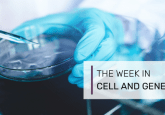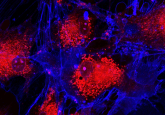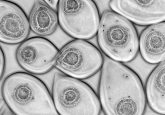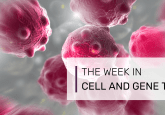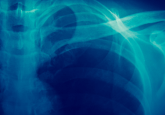Top 3 grants in regenerative medicine: February 2023

This month’s top grants in regenerative medicine, sourced from Dimensions, include projects on leaf-derived vascular scaffolds for skin regeneration, achieving safer gene therapies with synthetic adeno-associated viruses and Smart Injectable hydrogels based on marine Exopolysaccharide for osteochondral regeneration (SmartIEs).
Check out this month’s top grants in regenerative medicine:
Leaf-derived vascular scaffolds for skin regeneration
Both autologous skin grafts and bioengineered skin replacements suffer from limitations such as prolonged revascularization rates, impaired tissue ingrowth and delayed re-epithelialization. The researchers working on this project believe they can overcome some of these limitations with a novel decellularized leaf-derived vascular scaffold (LeaVS) they have developed. They hypothesize that LeaVS can be engineered to enhance the rate of graft neovascularization and pro-regenerative endothelial, dermal and epithelial tissue formation in wound models. If this hypothesis holds true, the findings from this study could enable a new standard of care for the treatment of traumatic wounds, venous ulsers and pressure sores.
Funding amount: US$448,000
Funding period:1 February 2023 – 31 January 2025
Funder: National Institute of Arthritis and Musculoskeletal and Skin Diseases (NIAMS)
Research organization: Worcester Polytechnic Institute (MA, USA)
Achieving safer gene therapies with synthetic adeno-associated viruses
Recombinant adeno associated viruses (rAAVs) are the most commonly used viral vector for gene therapy applications due to their broad tropism and stable transgene expression. However, the potential of rAAV-based gene therapies is currently limited by their toxicity and the risk of immune reactions. Recent research has provided evidence that the rAAV genome itself, comprising two inverted terminal repeats, is a major source of rAAV toxicity. On this account, the research team of this project aims to determine which components of the rAAV DNA sequence are responsible for toxicity in vivo and apply this information to develop cell-free synthetic rAAVs with engineered inverted terminal repeats that are safer for gene therapy applications.
Funding amount: US$420,000
Funding period: 1 February 2023 – 31 January 2028
Funder: National Institute of Neurological Disorders and Stroke (NINDS)
Research organization: University of California (CA, USA)
Smart Injectable hydrogels based on marine Exopolysaccharide for osteochondral regeneration (SmartIEs)
Articular cartilage injury involves damage to the cartilage that lines the ends of bones. Current treatment strategies, which include anti-inflammatory medication, orthotics and cell-based therapies, only permit partial functional recovery of the injured joint. This project aims to investigate a cell-free strategy that will stimulate the regeneration of both cartilage and subchondral bone. The researchers intend to develop an injectable hydrogel scaffold based on a marine bacterial exopolysaccharide. Once developed, the hydrogel will be loaded with growth factor microcarriers and its ability to repair osteochondral defects will be assessed in preclinical studies.
Funding amount: US$553,000
Funding period: 20 February 2023 – 19 February 2027
Funder: Agence Nationale de la Recherche (ANR)
Research organization: French Research Institute for Exploitation of the Sea (Nantes, France)
Regenerative Medicine and Skeleton (RMeS; France)
Institut des Matériaux Jean Rouxel (Nantes, France)
Brought to you with support from:

